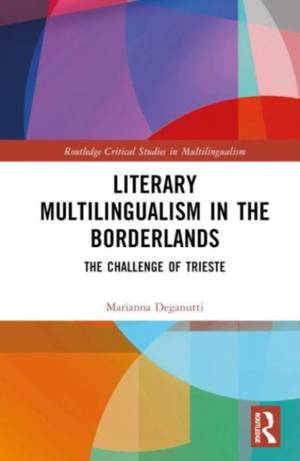
- Afhalen na 1 uur in een winkel met voorraad
- Gratis thuislevering in België vanaf € 30
- Ruim aanbod met 7 miljoen producten
- Afhalen na 1 uur in een winkel met voorraad
- Gratis thuislevering in België vanaf € 30
- Ruim aanbod met 7 miljoen producten
Omschrijving
This book focuses on literary multilingualism and specifically on the challenging condition of writing in Trieste, a key European borderland located at the intersection between the Latin, Germanic and Slav civilisations.
By focusing on some of the most representative modern writers operating in the area, such as Italo Svevo, Boris Pahor, Claudio Magris and James Joyce, this work offers a wide-ranging discussion of multilingual practices deriving from the different language choices made by these writers. Along with the most common manifest strategies, such as code-switching and hybridisations, Deganutti highlights how Triestine writers found innovative latent practices to engage with multilingualism, such as writing in an analogical way or exploiting internal linguistic stratifications. Moreover, she shows how they provided answers to the several linguistic, cultural and even political challenges they were subjected to, with the result of redefining linguistic boundaries that clearly separate different tongues.
This book will be of interest to graduate students, researchers and academics interested in literary multilingualism in the fields of sociolinguistics, borderland studies and comparative literature.
Specificaties
Betrokkenen
- Auteur(s):
- Uitgeverij:
Inhoud
- Aantal bladzijden:
- 206
- Taal:
- Engels
- Reeks:
Eigenschappen
- Productcode (EAN):
- 9781032213255
- Verschijningsdatum:
- 24/08/2023
- Uitvoering:
- Hardcover
- Formaat:
- Genaaid
- Afmetingen:
- 152 mm x 229 mm
- Gewicht:
- 462 g

Alleen bij Standaard Boekhandel
Beoordelingen
We publiceren alleen reviews die voldoen aan de voorwaarden voor reviews. Bekijk onze voorwaarden voor reviews.











